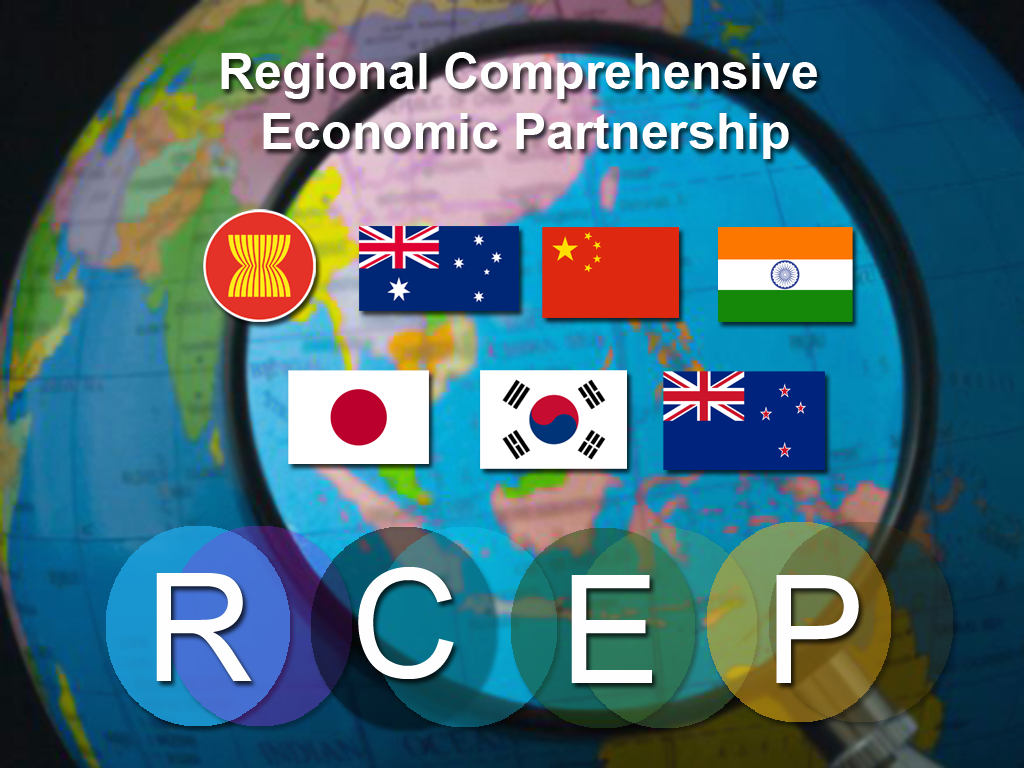India’s apprehensions on getting a raw deal if it joins RCEP have not yet been addressed.
India recently kept itself away from the deliberations that happened during the latest round of Regional Comprehensive Economic Partnership (RCEP) talks in Bali. India’s decision
India’s apprehensions on getting a raw deal in case of joining RCEP have not yet been addressed. The work on RCEP rules framework began as early as 2012, but until last year no movement towards a final solution was in sight. While products and goods got all the attention, services, project exports and investments were not discussed in detail. Many of the member countries are already having a very low or no tariff on goods and products as far as their cross trading is concerned. Over the years this has immensely benefited the Chinese products and ensured the free flow of Chinese goods. It is this aspect that India had highlighted for resolution as India would have had to cut its tariff regime very much to its detriment. From a meagre $16 billion, Indian exports of services grew to a whopping $200 plus billion by 2019. Without resolving India’s concerns in the services sector it would be impossible for New Delhi to join RCEP unconditionally and allow the resolution later.
But it would be better to note here that the Bali meeting afforded India an opportunity to put forward its concerns and work towards an amicable solution. It is not to suggest that it would have been the last meeting before the final consent, but the Bali meeting would have changed the course of RCEP. It was taking place in the background of a total ban on Chinese goods by not only RCEP member countries but by the entire world in general.
Trade deficit with China was another issue that India had flagged for discussion. While it is a bilateral issue, joining RCEP without resolving this issue would have had a negative effect on Indian industry, especially the agro based industries. But in the changed situation, India is in a position of advantage due to the drastic slowdown of the Chinese economy. Therefore, there was a possibility that India could have had its way in the negotiations and joined RCEP from a position of strength.
Many of the member countries were back in the negotiating table in Bali with a long list of amendments to the proposed market access clauses citing the near depression like syndromes noticed in the global economy. Added to this was the more serious issue of coronavirus epidemic emanating from Wuhan in China, threatening to cripple the Chinese economy with serious consequences in the region and elsewhere.
The slump in consumer spending in China is real and worrying. The worst hit is the export market as many ports of destination around the globe have enforced strict quarantine regulations and refuse to dock Chinese commercial containers. Within weeks of signing the first phase of the US-China trade pact, the US has decoupled the two economies and commercial transactions involving the movement of goods. Many factories in China have announced partial or complete closure and are likely to resume production only after another three or four months after getting an all clear certification from the WHO.
While New Delhi has offered to extend all possible cooperation to Beijing to cope with the deadly virus in keeping with the humanitarian and compassionate considerations, there is little or no strategy evident so far as the advantages accrued out of the economic fallout. New Delhi has a very wide window of opportunity in getting a slice of the market share that is now getting vacated due to the coronavirus epidemic and the shunning of Chinese products and services.
India’s apprehensions are still forming a major part of its strategy in dealing with RCEP. India’s engagement with RCEP members in having a negotiation for a free trade pact seems to be a far-fetched conclusion. Japan very clearly indicated that efforts were on to make India join the ambitious RCEP deal. It basically meant that all member countries of the grouping were showing their commitment to address India’s concerns. The presence of China in the RCEP grouping has raised concerns within India that the free trade pact would result in the in the domestic market being flooded with Chinese goods. How India will have to reconcile with this concern features prominently on its strategy. The issue of trade barriers remains an irritant between India and RCEP.
India has registered a trade deficit with 11 RCEP countries including China, South Korea and Australia during 2018-2019. India will have to find ways to become more competitive and perhaps through “Make in India” it can improve upon its manufacturing sector. If India is able to transform itself from a net importer in the manufacturing sector to net innovator and then further a net exporter, joining RCEP would perhaps become a plausible option. However, India will not miss such an opportunity by deciding not to participate even in the deliberations on RCEP because it will not be able to evolve a robust strategy where it could get a good understanding on the agreement aiming at a number of issues including services, goods, investments, economic and technical cooperation, competition and intellectual property rights. The members of RCEP would very much like to include India to avoid creating an economic grouping that could be dominated by China. India shall consider being a part of RCEP if the rest of the RCEP members provide adequate protection against circumvention of product origin rules and also if they address non-tariff barriers in the foreseeable future. India has all the potential to lead the RCEP and become the agenda setter.
Dr Arvind Kumar is a Professor of Geopolitics and International Relations at Manipal Academy of Higher Education (MAHE), Manipal. Seshadri Chari is a well known Political Commentator and Strategic Analyst.

